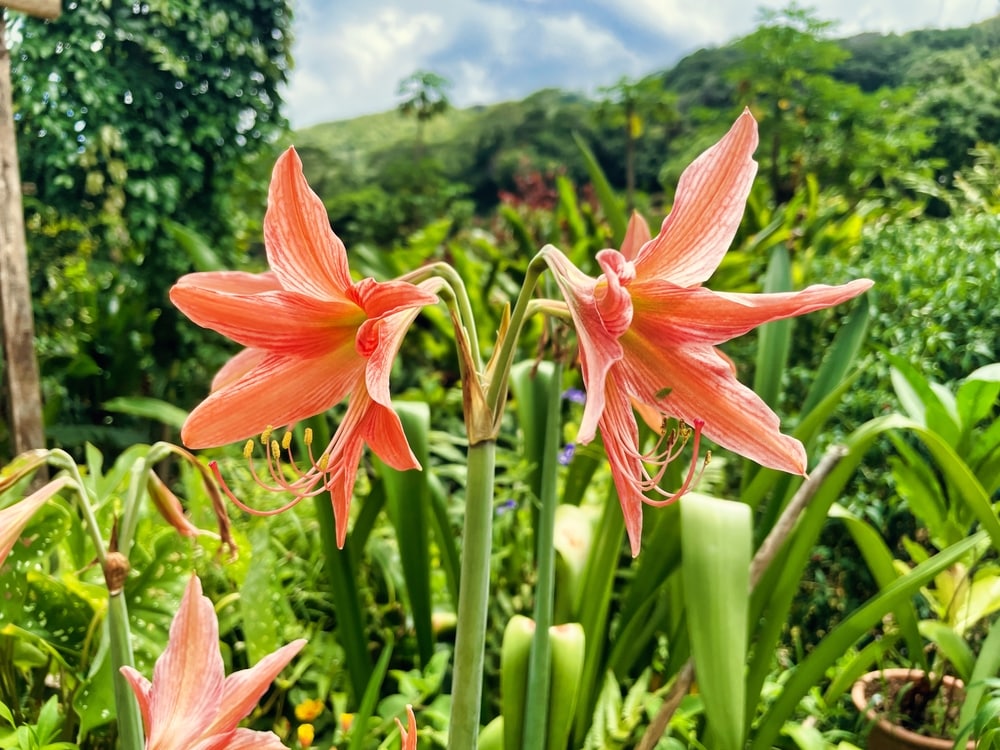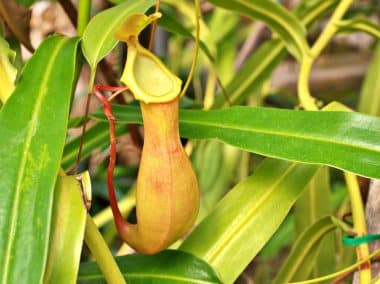
Those who go on holiday usually discover beautiful plants there. Then the thought quickly arises to simply take the pretty orchid or the small cactus home with you – but this is strongly discouraged. This is because the import of exotic plants into one’s own homeland is subject to strict rules.
The import of exotic plants endangers the native flora
The strict regulations on the import of exotic plants have a sensible background. This is because plants from other countries can also bring diseases or pests from other countries to which the native plants are not immune. This causes great damage, as the death of elms or the infestation of trees by the leaf miner and the citrus longhorn beetle have shown. Introduced plants can also spread and thus displace native plants, as in the case of the Japanese giant knotweed.
In order to protect the native flora, strict regulations have therefore been imposed on the import of foreign plants. Anyone who does not comply with this will face criminal consequences: Customs will confiscate and destroy the plant they have brought with them, while the holidaymakers themselves will have to pay a five-figure fine. Even prison sentences are possible.
Can I take plants from the European Union with me?
Fixed regulations also apply in the countries of the European Union. If you only want to take a few cut flowers with you, you usually don’t have to expect any problems here: bouquets of up to fifty flowers are allowed. In addition, it is permitted to take plants for private use if they are not listed in the Convention on International Trade in Endangered Species of Wild Fauna and Flora (CITES).
If holidaymakers want to take seeds or cuttings with them, it becomes more difficult. Different rules apply here depending on the country and plant. Fortunately, there is a simple strategy to avoid this: Holidaymakers can photograph their new favourite plant in their country of origin, find out its name and buy the plants online or ask for them in specialist shops.
Which plants may not be imported?

Holidaymakers who plan to take a plant with them from their holiday should find out what is allowed before setting off. Information is available, for example, from German customs or the respective plant protection of the federal states. The regulations are subject to the Washington Convention on International Trade in Endangered Species of Wild Fauna and Flora (CITES).
For better orientation, the Federal Research Institute for Cultivated Plants has published an information brochure that lists plants that may never be harvested from non-European countries. These include the following plants:
- almost all conifers,
- some deciduous trees such as chestnut and poplar,
- fruit trees,
- Vines
- Nightshade Family,
- Citrus
- many grasses,
- Potato tubers.
Important documents for importing exotic plants
To make sure that the import of a plant is legal, holidaymakers have to face a great deal of bureaucracy. This costs time and energy, which is why it is important to find out about all the necessary documents beforehand. First of all, all plants, but also cuttings and certain seeds, need a plant health certificate. This is issued by the plant health service of the holiday country.
Plants listed in the Washington Convention on International Trade in Endangered Species of Wild Fauna and Flora (CITES) still need further documents in order to be legally imported. These include an import permit, an export permit, and proof of origin from the country of origin.
Conclusion: Can I bring plants from my vacation?
Exotic plants can transmit pests to the native flora or even displace native species. That is why there are strict regulations on the import of the plants. In countries of the European Union, it is at least allowed to bring bouquets of up to fifty cut flowers. In almost all countries, however, most conifers, citrus plants, nightshades and many other species are banned.
Holidaymakers can obtain precise information about what is allowed and what is not from the plant protection services of their federal state or from German customs. But be careful: Even if it is allowed to bring a plant, it usually still requires a lot of paperwork and a lot of bureaucracy.

